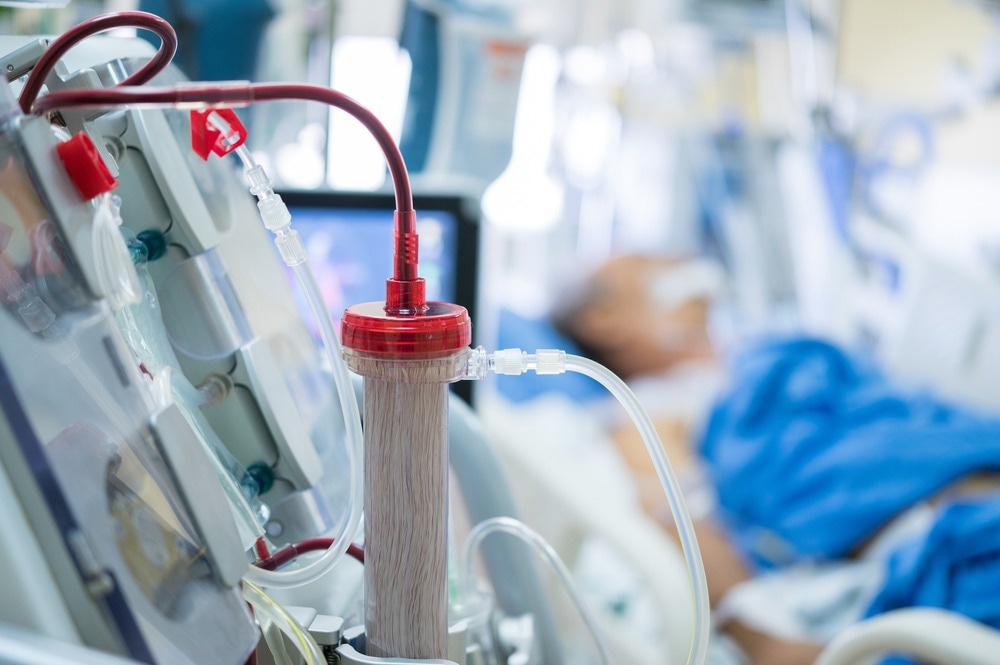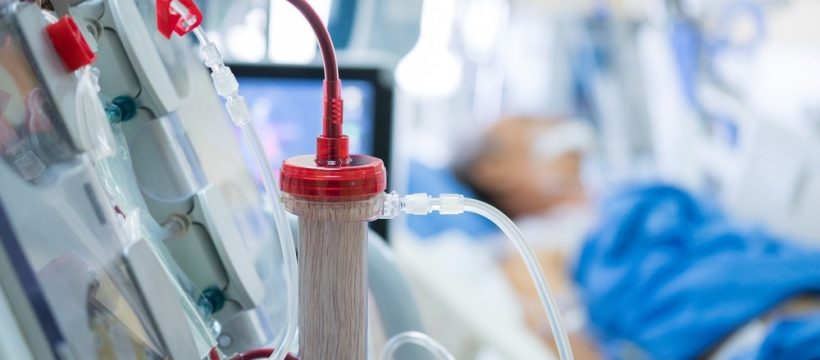In a recent study published in the Journal of Clinical Medicine, researchers investigated the B cell and humoral immune responses elicited against inactivated and recombinant severe acute respiratory syndrome coronavirus 2 (SARS-CoV-2) vaccines, and their safety profiles in patients with chronic kidney disease (CKD).

Background
Antibodies eBook

Chronic kidney disease is one of the comorbidities of severe coronavirus disease 2019 (COVID-19) associated with a high risk of hospitalization and death. Patients with a low estimated glomerular filtration rate (eGFR) below 30 mL/min/1.73 m2, have had a kidney transplant, or are undergoing dialysis have a high probability of experiencing worse COVID-19 outcomes. Chronic kidney disease is also associated with immunological dysfunction, exacerbated by low eGFR.
While vaccines have been critical in protecting CKD patients against infections, and vaccinations against influenza, hepatitis B, herpes zoster, and SARS-CoV-2 have shown good responses, there are some areas of concern regarding COVID-19 vaccines.
Since memory B-cell responses to SARS-CoV-2 have not been extensively studied, the duration of protection against COVID-19 granted by these vaccines among patients with CKD is not clearly understood. Furthermore, the efficacy and safety of inactivated and recombinant SARS-CoV-2 vaccines, widely used worldwide, have not been studied among CKD patients.
About the study
The present study analyzed the antibody levels and memory B-cell responses to recombinant and inactivated SARS-CoV-2 vaccines in CKD patients who did and did not require hemodialysis. Participants who had received the recombinant or inactivated SARS-CoV-2 vaccine were recruited for this observation study between the beginning of August and the end of December 2021 from a university-affiliated hospital.
The participants consisted of CKD patients who did not require dialysis, CKD patients who were undergoing hemodialysis, and healthy individuals who formed the control group. Individuals with a history of SARS-CoV-2 infections, who had been in close contact with one or more COVID-19 patients, who were pregnant, or who had not completed the vaccine regimen were excluded from the study.
Online questionnaires were administered to all participants to gather data on patient demographics, clinical data, and adverse events, including age, sex, the time between vaccination and sample collection, comorbidities, type of vaccine, and body mass index. Plasma samples were obtained to measure the immunoglobulin G (IgG) antibodies against the SARS-CoV-2 spike protein receptor binding domain (RBD). Chemiluminescence immunoassays were used to detect the anti-RBD IgG and neutralizing antibody levels.
Flow cytometry of peripheral blood mononuclear cells (PBMC) was conducted using a biotinylated SARS-CoV-2 spike protein RBD probe to detect the SARS-CoV-2 specific memory B cells. The antibody and memory B cell levels of the CKD patients were compared to those of the healthy individuals. For subgroup analysis, the antibody and memory B cell levels of patients who received the inactivated SARS-CoV-2 vaccine and those receiving dialysis were compared with those of healthy individuals.
Results
The results reported no differences in the positivity rates of the neutralizing antibodies or anti-SARS-CoV-2 RBD IgG levels between healthy individuals and patients with CKD. In CKD patients, the anti-RBD IgG and neutralizing antibody levels declined significantly at three months and six months. The positivity rates for anti-RBD IgG and neutralizing antibodies were 72.15% and 70.89%, respectively, for the patients with CKD, and the subgroup analysis which compared CKD patients who had received the inactivated SARS-CoV-2 vaccine with healthy individuals reported similar results.
However, in the subgroup analysis involving CKD patients undergoing hemodialysis, the positivity rates for the anti-RBD IgG levels were significantly lower than that of the control group. Furthermore, when the neutralizing antibody levels were analyzed further, the patients with CKD and those requiring hemodialysis had lower neutralizing antibody levels.
Furthermore, the memory B cell subgroups were also different between the CKD patients and the healthy control group. The RBD-specific atypical memory B cells, RBD-specific activated memory B cells, RBD-specific intermediate memory B cells, and resting memory B cells were all higher in CKD patients than in healthy individuals.
The CKD patients also experienced slightly different adverse reactions to the recombinant and inactivated vaccines than the healthy individuals. While most adverse reactions were self-limiting, including nausea, low fever, and fatigue, two CKD patients having glomerulonephritis experienced proteinuria, with one advancing to nephrotic syndrome and requiring immunosuppressive therapy. The control group reported no adverse reactions.
Conclusions
The results indicated that the recombinant and inactivated SARS-CoV-2 vaccines elicited good anti-RBD IgG and neutralizing antibody responses in CKD patients and were well-tolerated. However, a substantial decline in antibody levels was observed in CKD patients three months following each dose. The memory B cell profiles significantly differed between CKD patients and healthy individuals. The results highlight the need to develop vaccination strategies that are more effective for patients with CKD.
- Zhang, S. et al. (2023) "Cellular and Humoral Responses to Recombinant and Inactivated SARS-CoV-2 Vaccines in CKD Patients: An Observational Study", Journal of Clinical Medicine, 12(3), p. 1225. doi: 10.3390/jcm12031225. https://www.mdpi.com/2077-0383/12/3/1225
Posted in: Medical Science News | Medical Research News | Disease/Infection News
Tags: Antibodies, Antibody, B Cell, Blood, Body Mass Index, Cell, Chronic, Chronic Kidney Disease, Coronavirus, Coronavirus Disease COVID-19, covid-19, Cytometry, Dialysis, Efficacy, Fatigue, Fever, Flow Cytometry, Glomerulonephritis, Hepatitis, Hepatitis B, Herpes, Herpes Zoster, Hospital, Immunoassays, Immunoglobulin, Influenza, Kidney, Kidney Disease, Kidney Transplant, Medicine, Nausea, Nephrotic Syndrome, Protein, Proteinuria, Receptor, Respiratory, SARS, SARS-CoV-2, Severe Acute Respiratory, Severe Acute Respiratory Syndrome, Spike Protein, Syndrome, Transplant, Vaccine
.jpg)
Written by
Dr. Chinta Sidharthan
Chinta Sidharthan is a writer based in Bangalore, India. Her academic background is in evolutionary biology and genetics, and she has extensive experience in scientific research, teaching, science writing, and herpetology. Chinta holds a Ph.D. in evolutionary biology from the Indian Institute of Science and is passionate about science education, writing, animals, wildlife, and conservation. For her doctoral research, she explored the origins and diversification of blindsnakes in India, as a part of which she did extensive fieldwork in the jungles of southern India. She has received the Canadian Governor General’s bronze medal and Bangalore University gold medal for academic excellence and published her research in high-impact journals.
Source: Read Full Article
